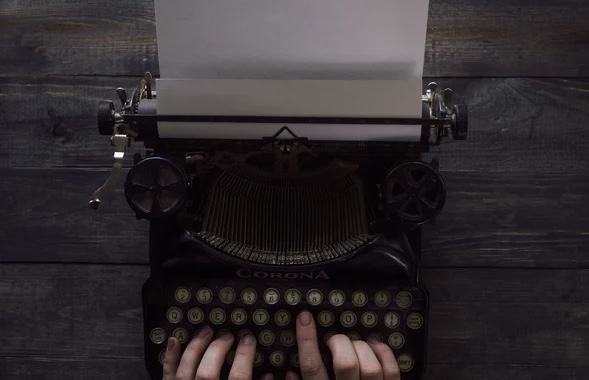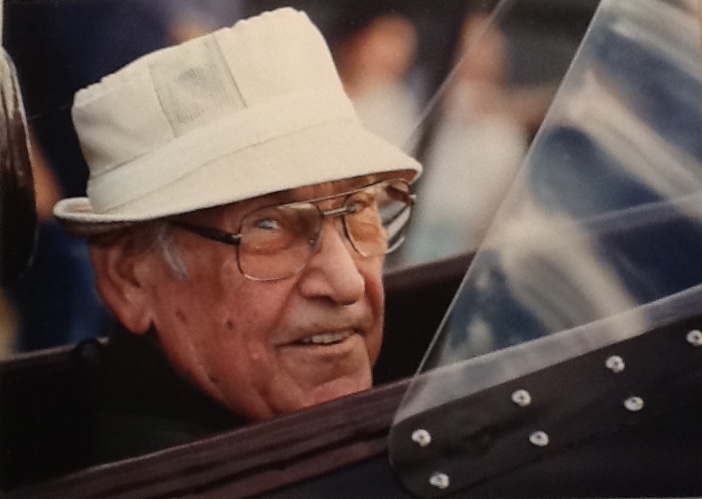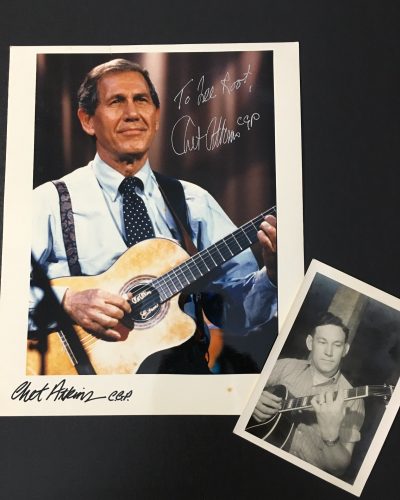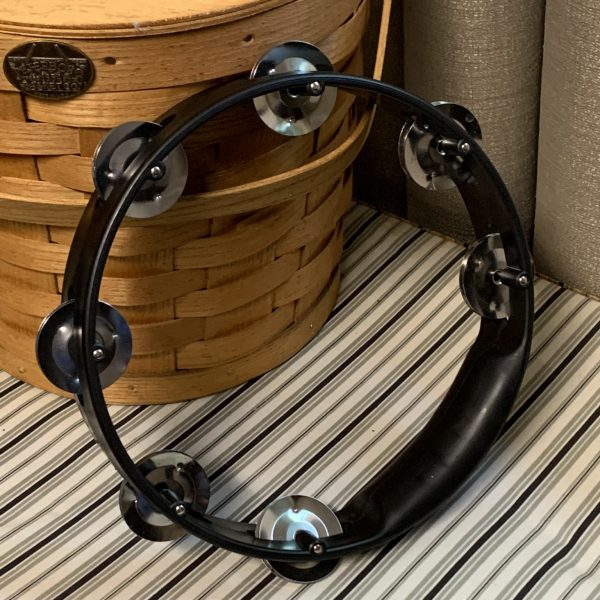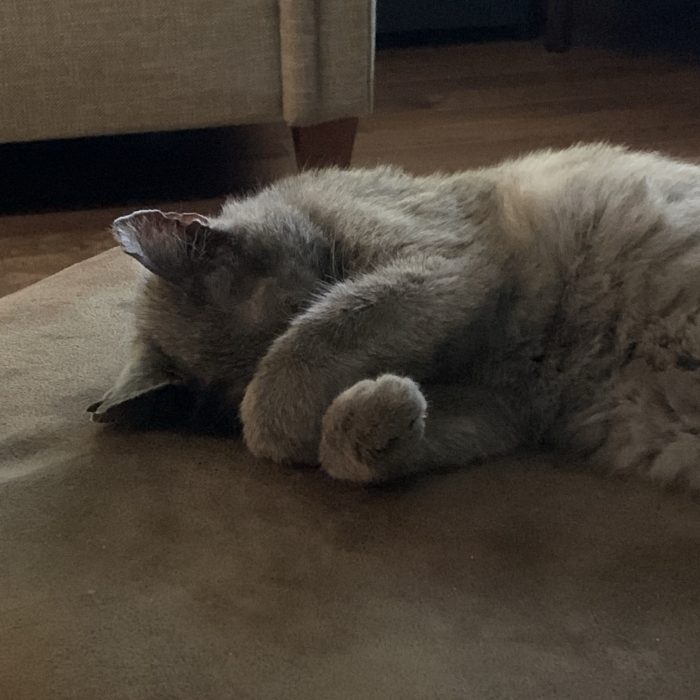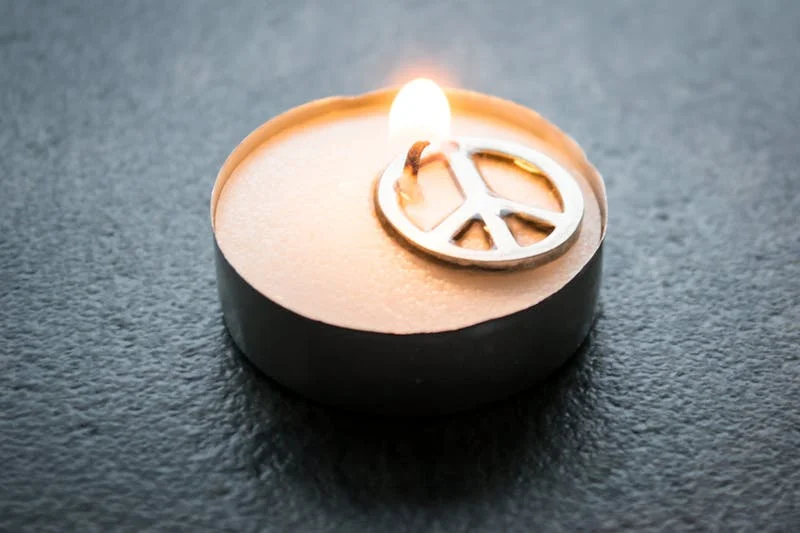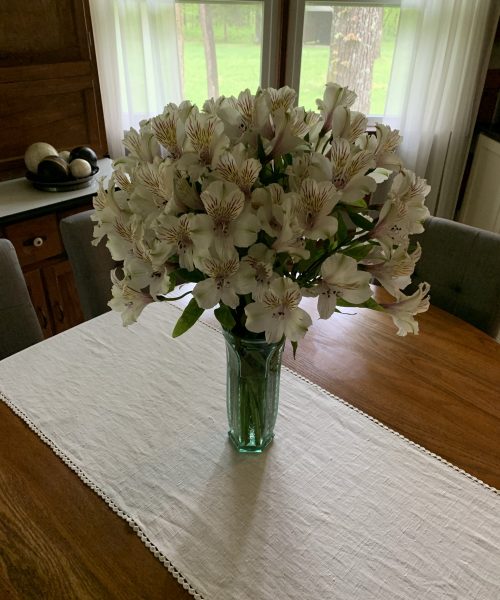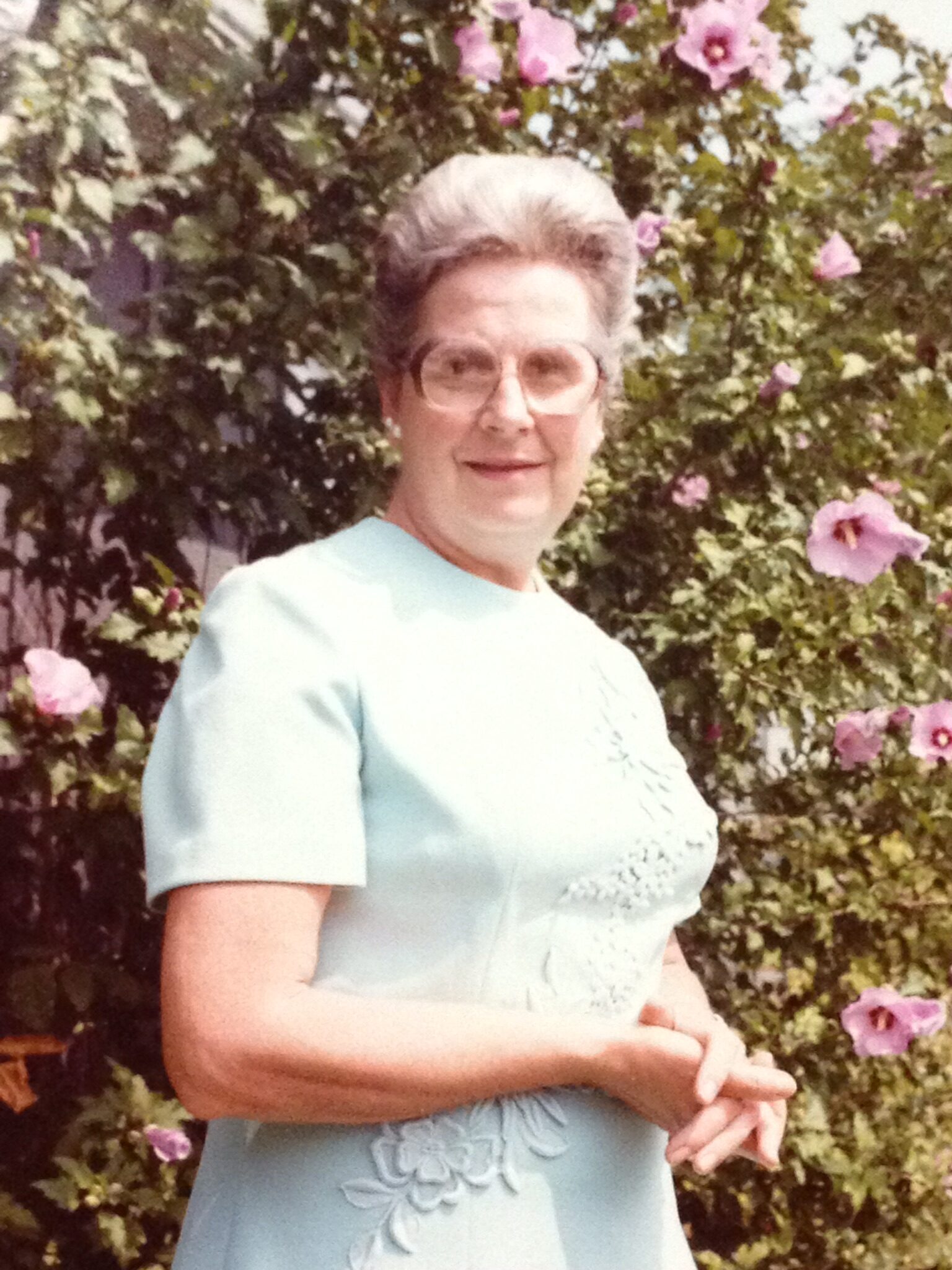Basil was often considered – and perhaps unfairly – to be an odd child. Unusually quiet, she was a bit of a loner and nearly always had her nose stuck in a book. Her name didn’t help matters, either. It originated, not from an affinity for the actor Rathbone, but rather a particular fondness for the herb, and it had been thrust upon her by a domineering grandmother. Basil’s father died before she was born – apparently a freakish accident involving an abandoned quarry, a pogo stick, a bet and a great deal of gin – and her mother was a nonconfrontational little creature with an inability to stand up for her convictions. Had her mother been a bit more strong-willed, Basil might have answered to a more mainstream name like Kimberly or Nicole, thereby avoiding a plethora of unpleasant playground taunts. She never cared much about the opinion of others, though, so her mother’s failure to insist on a more pleasing moniker was a moot point.
This morning, as she lingered in the sunbeam shining across her bed, Basil thought about the day’s possibilities. It was the first day of summer vacation and, at the moment, Granny hadn’t made any demands for her time. That would come soon enough, but right now it felt luxurious to burrow into her pillow and watch the dust bits dancing in the sunlight.
The sounds and smells of breakfast made it hard to stay in bed long, so Basil threw back her sheet, stretched her legs up and pointed her toes at the ceiling. She scissor-crossed her ankles a couple of times and then flung her body sideways, rolling off the mattress and landing quietly on her feet. She took off her nightgown, folded it and put it under her pillow. After quickly making her bed, she ran a brush through her hair, pulled on a pair of jeans and a tee shirt, and strolled barefoot across the room to the door. It was open a few inches as always – Granny didn’t allow anyone full privacy – and Basil paused as she reached for the knob. The phone was ringing. She leaned closer to the opening and listened.
Before it had a chance to ring a third time, Basil heard her grandmother’s firm voice. “Yes, who’s calling?” After a few seconds of silence, there was a gasp followed by the clatter of something landing on the oak floor below. Basil tiptoed out of her room – instinctively knowing where to step to avoid the creaky floorboards – and she leaned over the railing that ran the length of the upstairs hall above the foyer. She watched her grandmother slowly bend down, pick the receiver up off the floor and place it back on the phone’s cradle. Granny used the small hall table for support as she straightened up fully, ran her hands along either side of her head to smooth her hair and then walked back toward the kitchen.
When the sounds of breakfast preparations recommenced, Basil padded down the steps and gave the phone a passing glance before making her way to the dining room. Granny had the table set for three, as she always did, and Basil took her usual seat, facing the door to the kitchen. She was barely settled in her chair when Granny came through the swinging door with a large tray in her hands. After putting it down where there was no place setting, her grandmother took a large, covered bowl from the tray and placed it on the table. She then set two covered plates next to the bowl and carried the empty tray back through the door to the kitchen.
Basil silently counted the seconds – 1 Mississippi, 2 Mississippi, 3 Mississippi, 4 Mississippi, 5 Mississippi – and watched the door swing open again revealing Granny holding the same tray. Only this time it held two glasses of juice, a glass of milk and a steaming cup of what Basil knew to be creamed coffee. Granny never deviated from her routine. She would ready the tray with the breakfast food and bring that out first, then it would take her exactly five seconds to walk briskly back into the kitchen, place the prepared drinks on the tray and set the door to swinging again as she made her way into the dining room for the second time. The old woman may have seemed ancient, but she moved fast.
Granny set a glass of juice and the glass of milk at Basil’s place setting. She then set the other glass of juice and the cup of coffee by the place setting at the head of the table. There were no beverages for the third place setting. Basil pretended not to notice. Clearly, her mother hadn’t come home last night. It was something that happened often and always went without comment.
After Granny situated herself in her chair, she placed her napkin in her lap. She waited for Basil to do the same. Once satisfied, she bowed her head and, with a side-glance to her right, she nodded sharply for her granddaughter to follow suit. Basil closed her eyes and bent her head down until her nose touched the rim of her plate, causing her to stifle a giggle. This time it was Granny who pretended not to notice.
“Lord, bless this food for our nourishment and watch over this unabashedly irreverent child. Amen.”
Granny lifted the cover from the bowl and spooned a large helping of scrambled eggs onto Basil’s plate. She uncovered the two plates which contained bacon and buttered toast and served two slices of each to Basil. She repeated the process for herself and quietly began to eat.
With the exception of the nudging glance before saying grace, Granny had not made eye contact with Basil. This was also routine, along with eating their meals in silence. But Basil broke the pattern this morning.
“Granny, who was that on the phone?” She carefully watched her grandmother’s face to see if her expression might give away what surely would be missing from her answer.
Granny set her fork down next to her plate, looked Basil squarely in the eyes and said, “Curiosity killed the cat.” She then retrieved her fork and went back to eating.
About the only thing of interest that Basil saw in Granny’s response was that her mouth twitched, ever so slightly, before she looked up and spoke. That, and her hand shook a bit as she raised the fork to her lips. The meal continued on in silence.
2
As expected, once the breakfast dishes were cleared and the day was truly underway, Granny handed Basil a sheet of paper.
“Get started now so you can be finished by lunch time. I’ll be checking to see how you’re coming along.” Granny’s tone was never overly harsh, nor did it contain any hint of affection. She spoke with a matter-of-fact flatness that gave no indication of how she felt one way or another. Basil turned the paper over in her hand and read the list.
- Bring in the newspaper.
- Dust the downstairs furniture.
- Vacuum the downstairs carpets.
- Sweep the front and back porches.
- Take out the trash.
Lunch would be served promptly at noon which gave her four hours to finish everything on the list. Piece of cake. The dusting took the most time, and the vacuum cleaner was heavy and hard to handle, but that was no problem. Basil had been doing chores since she was old enough to hold whatever implement was needed to complete the task. Now 12 years old, even the vacuuming was getting easier.
After lunch, Granny would hand Basil a list very similar to the first one, but it would be for the upstairs. Instead of the newspaper, she would need to bring in the mail and, instead of sweeping porches, she’d be cleaning bathrooms.
This would be repeated every weekday during summer vacation. Why her grandmother felt the need to give her new lists every day was beyond her. Basil knew the chores by heart, but it was another routine that never changed, and she’d learned long ago to simply play along. Granny didn’t allow others to work in her kitchen, though, so that was one area Basil didn’t have to think about. She didn’t have to worry about outside chores, either. Granny relied on Harlan Thomas, a local handyman, to do the yardwork and any other maintenance the old white farmhouse required. Lucky for him, he was dependable and very good at his job. Granny was exceptionally particular and not the least bit shy about pointing out inefficiencies in others.
On Saturdays, Basil was allowed to do as she pleased and, although she did have to attend church every Sunday morning with Granny, her Sunday afternoons were free, too. As she started on her morning list of chores on this sunny Monday, Basil made a mental note that freedom was only five days away, and her first order of business on Saturday would be to go to the library. No amount of reading ever felt like enough to her. There was only one place she’d rather be than searching those dusty old shelves for her next great escape, and that was a quiet corner where she could curl up and lose herself in a good book. Smiling at the thought, she hummed quietly as she went out to get the paper.
3
Routine fell by the wayside just before noon. The trash cans were behind the garage and, as Basil started back toward the house to return the empty wastebaskets, she saw a black and white sedan pulling into the drive. She didn’t need to read the writing on the side or make out the person behind the wheel to know it was Sheriff Peterson. While their little town did boast a sheriff, two deputies and a middle-aged frump who answered the station phone, Basil was well aware that no one but the sheriff was allowed to drive that car. The deputies had to use their own vehicles which, to her, always seemed a little unfair.
The sheriff got out of the car and motioned Basil over to where he was standing. “Hello, there, young’un. Nice day for chores, isn’t it?”
Basil wasn’t accustomed to adults making small talk with her, so she simply nodded her head and squinted up at him to see what else he might have to say.
“Not much of a talker, are you?” He tilted his head and then nodded up at the house. “Is your granny inside?”
This time, Basil figured it might be wise to at least try to be polite. “Yes, sir. She’s probably in the kitchen. I can go get her for you.”
The sheriff shook his head and smiled. “No, no, that won’t be necessary. I’ll go on up and knock. But I need you to do me a favor. Can you do that?”
Basil continued to squint up at him. She wasn’t being intentionally rude, but he was a lot taller than she was and the sun was right over his head. “Sure, I guess so.”
“Great,” he said, as he bent down to her eye level. “I need for you to find something to keep yourself busy outside while I go in and talk to your granny. It’s grownup stuff and we can’t be interrupted. Do you know what that word means?”
“Interrupted? Uh…yeah,” Basil replied, not even trying to hide her annoyance.
The sheriff laughed and ruffled Basil’s curly brown pixie before he headed to the porch. When he got to the top step, he turned and hollered back at her, “Remember what I said. You just stay outside.”
4
Basil counted to a hundred, then snuck up under the front room window and pulled herself up enough to peer inside. Granny was sitting on the sofa with her head bent down while the sheriff sat next to her. Basil couldn’t hear what he was saying but, from the looks of things, it wasn’t anything good. She stayed low and tiptoed along the front of the house until she was out of their view, and then she walked over to the garage to wait.
She waited a long time. From the way the sun had shifted, she figured the sheriff had been in with Granny for almost an hour. For most of that time, Basil sat in the shade with her back against the side of the garage, thinking about what kinds of books she wanted to check out on Saturday. After a while, her butt got numb, so she pulled herself up and began pacing back and forth in the driveway. At that point, instead of daydreaming about the library, she was trying her best to ignore the rumbling in her stomach. Lunch was always at noon – even at school – and when a body got used to that, a delay like this was downright bothersome.
She was considering going over to the outside spigot for a drink when she heard the squeak of the front screen door. Granny was standing too far inside for Basil to see her, but she watched as the sheriff tipped his hat to her grandmother and then made his way off the porch.
Losing any hint of deference to authority, Basil ran over and blocked the door to the sheriff’s car. “You were in there a really long time. What’s going on?”
“Whoa, there, missy! That’s no way to talk to me.” The sheriff crossed his arms and stared down at her. “Didn’t your granny ever teach you to respect your elders?”
Thinking she might have gone too far, Basil stared at the ground and nodded. “Yes, sir, she did. I’m sorry. It’s just that…”
“I know,” he gently interrupted. “It’s scary to have the police come to your house and not know why.” Bending down, he looked her in the eye the way he had earlier. “Like I said before, we had grownup things to talk about. We’re done now, though, and I know your granny is waiting for you to come in so she can explain everything. It’s her place to tell you, not mine. Does that make sense?”
“Yeah,” Basil said. “I guess so.”
“Good,” he smiled and stood back up. “You go on inside now.”
5
Basil walked softly through the shadowed foyer and glanced into the front room. Not finding Granny there, she went through the dining room and listened outside the door to the kitchen. She heard the refrigerator door close, then a drawer being slid open and suddenly the clanking of some sort of utensil hitting the floor. She pushed the door open and saw Granny leaning back against the counter with her face buried in her hands. The carving knife was lying on the linoleum next to her feet. Basil walked over and picked up the knife, pretending not to notice as her grandmother turned away and wiped her eyes.
“Granny, I can make the sandwiches. Why don’t you go sit at the table?” Basil had never been allowed to do much in the kitchen, but she’d watched plenty of times when her grandmother – and sometimes even her mom – went about the business of sandwich assembling. It didn’t look very complicated.
Keeping her back to Basil, Granny nodded and said, “That would be nice.”
Frowning, Basil watched her grandmother disappear into the dining room, and then she turned back to the task at hand. The bread and leftover roast were already out, so she rinsed off the knife and set to work, carefully slicing off enough meat for two sandwiches and spreading mustard on the bread before putting it all together. Placing the sandwiches on small plates and adding one cookie to each, she set the plates on the tray and carried it into the dining room. Her grandmother was sitting in her usual place at the head of the table, simply staring out the window. After setting one plate in front of Granny, and the other at her own place at the table, Basil returned to the kitchen and filled two glasses with lemonade. Not trusting herself to balance those on the tray, she carried them back by hand. Granny appeared not to notice as Basil set a glass down in front of her.
Once in her own chair, Basil started to reach for her sandwich and stopped short, realizing Granny hadn’t said grace. Several seconds passed before Basil cleared her throat and asked, “Aren’t you going to pray, Granny?”
Granny slowly turned to face Basil and said, “No, child. It won’t change anything.”
Trying to force the lump in her throat back down into her stomach, Basil looked at her plate without seeing it. Her appetite was a fading memory. She didn’t know what was going on, but she knew it was bad. And for the first time since she was a little kid imagining monsters in the dark, she was very, very scared.
6
It was an unseasonably hot day for this early in June, and Basil tugged at her dress collar as it clung to the back of her neck. She so badly wanted to put on shorts and go outside, disappearing into the cool shade of the tree grove beyond the back yard. She wanted to pretend all of these people weren’t milling around her house, shaking their heads and wiping their eyes. She wanted her mother to come bouncing down the stairs like she had so many times before – giggling for no apparent reason and offering to take Basil to town for ice cream.
But Basil’s mother would never bounce down those stairs again. Not ever. Five days earlier, the sheriff had made a visit to their home that spoiled everything. A visit to confirm what he’d called about that same morning. He brought news that was like a cancer to their very existence and now nothing would ever be the same.
Dead. Basil’s mother was dead. She’d been out with one of the locals who was known to play fast and loose with the speed limit, and one small mistake sent them sailing off a sharp curve into Tannon’s Quarry. The same quarry that took Basil’s drunken father all those years ago. When the police arrived at the scene and struggled their way down to the huge rocks below, they found a smashed-up Corvette and, ironically, two completely sober bodies.
Still a young, pretty woman who liked to go out and party, Basil’s mother did the best she knew how. She was a constant disappointment to Granny but, when it came to Basil, she loved spending time with her daughter. It wasn’t necessarily what you’d call quality time – Basil never really felt like her mother understood her or the things she was interested in – but it was always fun time. Like going for ice cream on a whim, playing Crazy Eights on the back porch or racing down the long gravel drive to the mailbox. Basil knew she was more mature than her mother in many ways, but that didn’t make her love her any less. Now she guessed all she had left to love were the memories. The thought of that just made her feel worse.
Continuing to pull at her collar, Basil tried to be invisible by sitting in a shadowed corner of the living room. She didn’t want all those people there, but they were there all the same, and she was powerless to do anything about it. Most of them were friends of her grandmother’s, but there were a few who were closer to Basil’s mother’s age. Some of Basil’s classmates were even there with their parents. She didn’t have many true friends, but there were a couple of kids Basil sat with at lunch. Millie Andrews was one of them, and Dustin Shutt was the other. They were there now with their parents and heading her way. Basil’s stomach was a knotted ball of barbed wire, but she sat up in her chair and tried to look normal. Not because she cared one way or the other about what people thought of her, but she knew it was important not to embarrass her grandmother. Granny was dealing with enough as it was, and the last thing she needed was to have to explain why her granddaughter was hiding in the corner like some scared animal.
Millie was the first to speak. “Hi, Basil. Sorry your mom’s dead.”
“Millicent!” Her mother’s face reddened. “You apologize this instant!”
Basil surprised herself by smiling. “It’s okay, Mrs. Andrews. She’s not wrong. My mom is dead.”
7
Basil and Granny stood on the porch and watched as Harlen, the last mourner, drove away in his work truck. The heat had let up a little and it wasn’t as humid as it had been earlier.
“There’s a cool front moving in,” said Granny as she walked over and sat down in one of the porch rockers. “Go up and change into more comfortable clothes, and then come back down to sit with me. I know you’ve been feeling downright tortured having to wear that dress all day.”
Basil didn’t move. This was the closest to a friendly encounter she’d ever had with her grandmother. It felt foreign, and more than a little awkward, but it was also sort of nice and she didn’t want to do anything to break the spell. She looked at her grandmother – really looked at her for perhaps the very first time – and noticed how fragile she appeared. Sitting there, still wearing her funeral garb, she wasn’t the stoic woman Basil was accustomed to. She seemed frail and sad and maybe even a little lost.
“Go on now, child. And maybe you could bring out a couple of glasses of lemonade when you come back down. I sure do think that would hit the spot.” Her grandmother rocked slowly back and forth, a hint of a smile on her tired face.
“Uh, yeah, sure…I can do that.” Basil gave her grandmother one more glance before running inside.
Upstairs in her room, Basil threw her dress into her hamper and put on some jeans and a fresh tee shirt. Her mind was whirling. She shoved her own sadness aside and thought deeply about what her mother’s death meant to her grandmother. Basil always felt like her mom never quite lived up to Granny’s expectations. But then, Basil never felt like she did, either. She often wondered if there was anyone on the planet who could measure up in Granny’s eyes. She hadn’t stopped to think about what her grandmother must be feeling right now, though. To lose your only child – even if that child caused you many disappointments – why, that must be just awful. Horrible, actually. If Granny’s heart was hurting anywhere near as much as Basil’s, then it was a pain that was deep and dark and endless.
Basil had been suffering that pain all week. She’d cried herself to sleep each night since they got the news. Granny hadn’t given her the usual chore lists, but Basil did every task each day anyway. She needed to keep busy because it was the only thing that helped to blunt that deep, dark, endless pain. She caught her grandmother silently watching her at times, and she almost felt like she was being spied on, but now she thought it was probably something much less sinister. Maybe Granny was just working through her own pain as best she could. Once she considered that, Basil was ashamed that it never occurred to her before. She slipped her tennis shoes on and hurried back downstairs.
8
Remnants of an orange sunset were barely visible above the trees and two empty glasses sat in sweat rings on the floorboards between the rockers. Besides a “Thank you” and a “You’re welcome” when the lemonade was presented, neither Basil nor her grandmother said anything until now.
“Basil,” Granny gazed down at her hands, now folded in her lap. “I owe you an apology.”
Shifting in her seat, Basil looked at her grandmother. “Why? What for?”
Granny sighed and looked back at her granddaughter. “Child, I know I’ve never been very welcoming. Not to you. Not to anyone, for that matter. It’s a part of my nature that I’ve always hated but never knew how to fix. Your mother, God rest her soul…well, she took the brunt of it. She walked a path I didn’t approve of, but she never deserved the way I treated her. There are reasons for me being the way I am, but those aren’t for your ears. At least not until you’re older. It’s too late now for me to tell my sweet daughter how sorry I am, but I want you to know I’m going to try to do better.” Shaking her head, she continued, “No, that’s not right. I am going to do better.”
“Uncomfortable” didn’t even come close to describing what Basil was feeling as she watched her grandmother wipe the tears away. But she was pretty intuitive and had a good instinct about what she needed to do in that moment. Granny was baring her soul and, more than anything, she wanted her grandmother to know it was safe to do so.
Basil got up and knelt next to the other rocker. Putting a hand on her grandmother’s shoulder, she said, “We can probably both do better, Granny. I mean…I know I’m not perfect.” Basil’s voice caught as she went on. “I really miss mom and I know you do, too. But we’ve still got each other. I guess we’re really about all each other has now. Maybe we can figure out a new normal for the two of us.”
Touching Basil’s face, her grandmother smiled. It was a warm, genuine smile that reached all the way to her tear-damp eyes. “I like the sound of that, Basil. I really do. Any ideas on how to make that happen?”
Basil looked out at the fireflies and took a deep breath before answering. Turning back to her grandmother, she said, “Well, for starters, maybe we could ditch the chore lists. I mean, Granny, I already know what needs to be done. I’m not a little kid anymore.”
Granny’s eyes grew wide, and she put a hand over her heart. “The…the lists? You want me to do away with the lists? Oh, child, what are you trying to do to me?” Before Basil could take back what she’d said, her grandmother pulled her into a tight hug and began to laugh. “I’m just joshing. Of course, we can…as you say…ditch the chore lists!”
Warm tears streamed down Basil’s cheeks as she hugged her grandmother back and, somewhere in the back of her mind, she wondered why they had never done this before. It was one of the sweetest feelings she’d ever known. No matter what the future held, she wanted to make this moment last as long as she could. Her mother may be gone, leaving behind a hurt that would never go away, but Granny was still very much here.
And, as impossible as it would have seemed a week ago, this Granny was someone Basil couldn’t wait to get to know.
